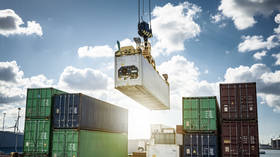And while DPS ships by boat whenever possible, it’s hardly cheap — the price of shipping a container has gone from roughly $5,000 to $20,000 in some cases, Mr. Adema said. Overall, raw material costs for DPS are up 10 to 15 percent.
These kind of increases are coursing through the economy, and are a primary reason inflation is running at the fastest pace in 31 years, with a 6.2 percent increase in prices in October from a year earlier. But unlike many other companies, DPS hasn’t been able to pass on the higher costs to consumers.
“Our ski shop customers place their orders in the spring, and they’ve committed to pricing and delivery dates for this upcoming season,” Mr. Adema said. Designed for backcountry touring as well as resort trails, the company’s skis sell for about $800 to $1,400 a pair. Poles begin at $99. “For us to change prices in midstream would not be good for relations with our community,” Mr. Adema added. “We have to absorb the costs.”
Other manufacturers face many of the same issues but have more flexibility on prices. Honey-Can-Do, a maker of housewares like storage carts and shelving in Chicago, has been able to pass along its higher costs, said Steve Greenspon, the company’s owner and chief executive.
“Everybody knows what’s going on,” Mr. Greenspon said. “It’s become commonplace and accepted this year for retailers to accept cost increases. I’ve heard from merchants that over 90 percent of vendors are giving them price increases.”
This trend marks a turnabout from prepandemic days. “If you tried to pass along a major price increase to a big retailer a couple of years ago, there’d be concerns about your relationship,” Mr. Greenspon said. “But in the current atmosphere, it’s the norm.”
Honey-Can-Do’s prices are up roughly 10 percent to 25 percent, depending on the raw materials, freight costs and how much corrugated packaging is used in shipping. Its products include a 65-inch baker’s rack with a cutting board and hanging storage that retails for $119.99 and a toy organizer with 12 bins that sells for $59.99.
Article source: https://www.nytimes.com/2021/11/29/business/economy/supply-chain-inflation.html



